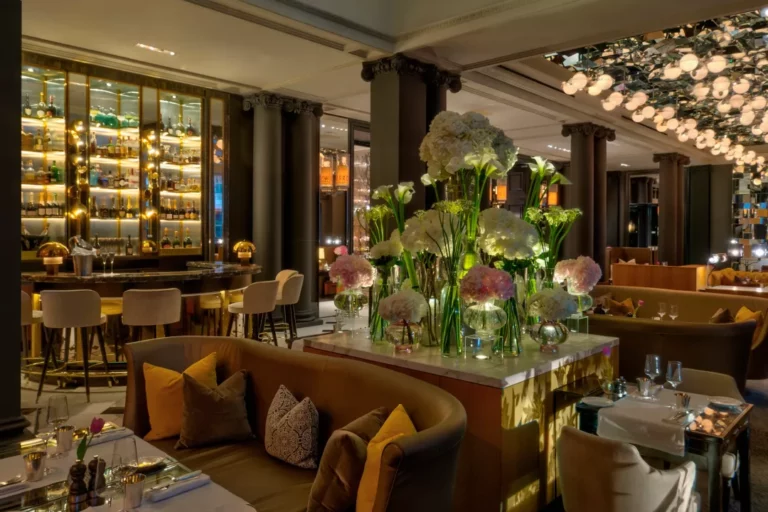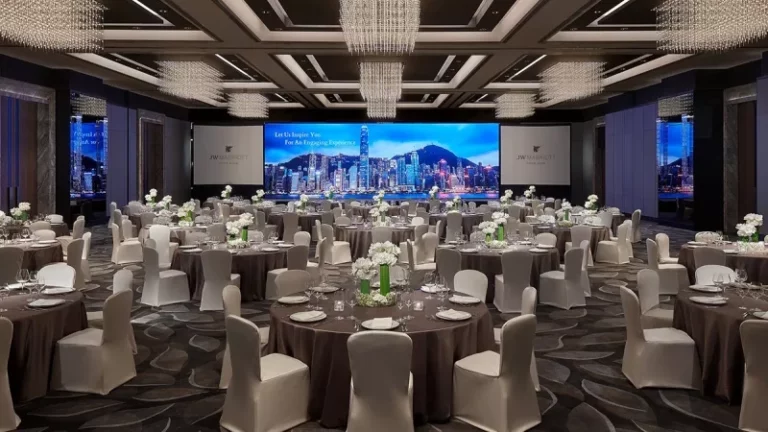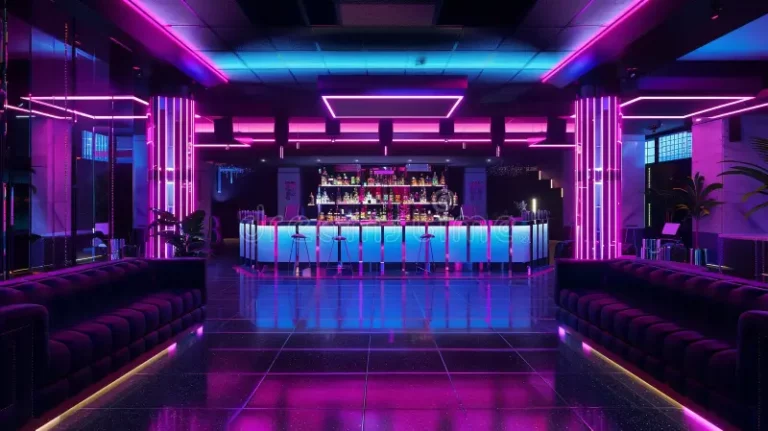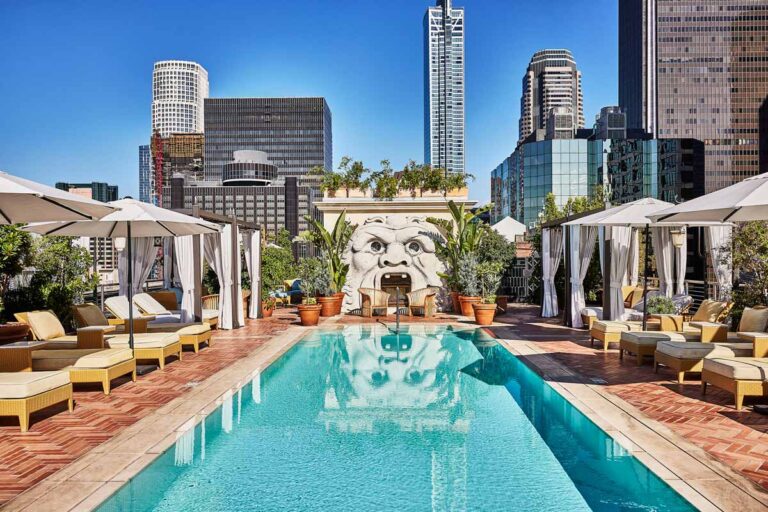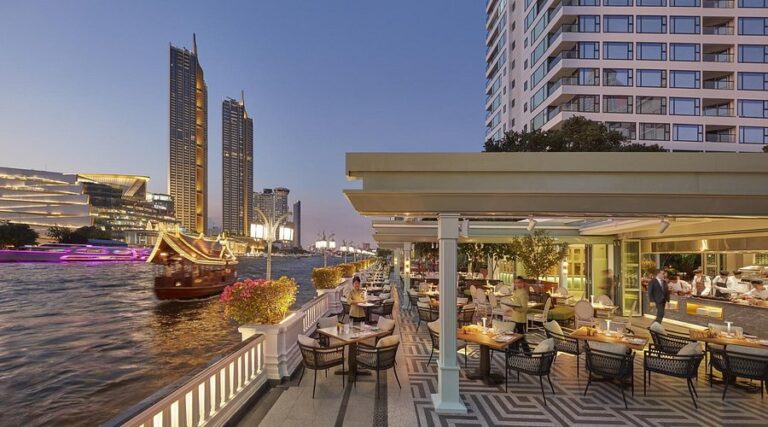Understanding the Different Marriott Hotels: Brands, Benefits, and Use Cases Explained
Marriott International is one of the world’s most expansive hotel chains, offering a wide array of brands catering to every type of traveler. Whether you’re planning a luxury vacation, a business trip, or a budget-friendly extended stay, understanding the different Marriott hotels is essential for making the most out of your travel experience.
With over 30 distinctive brands and thousands of properties worldwide, Marriott delivers tailored experiences backed by global consistency and innovation. In this guide, we’ll walk through the major categories of Marriott brands, showcase real-world examples, and highlight the technology and practical benefits that make these hotels relevant for modern travelers.
Overview of Marriott Hotel Brand Categories
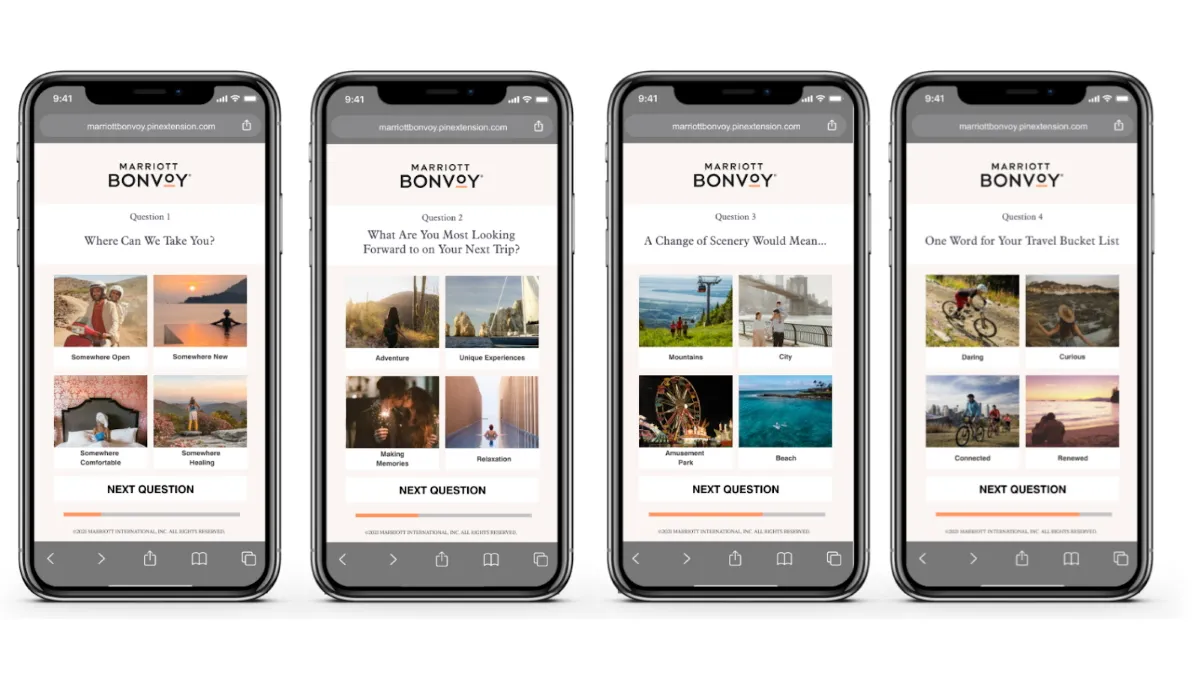
Marriott organizes its portfolio into several categories, primarily defined by service level, design, target audience, and pricing. The main categories include:
-
Luxury Brands – For high-end travelers seeking elevated service and curated experiences
-
Premium Brands – Ideal for guests who want upscale comfort without full luxury pricing
-
Select Brands – Focused on convenience, affordability, and efficiency
-
Longer Stays – Built for guests staying multiple nights with in-room kitchenettes and flexible amenities
-
Lifestyle Brands – Design-driven, social, and tailored to millennial and Gen Z preferences
This segmentation allows Marriott to meet a wide range of traveler needs, whether you’re a business executive, a solo adventurer, or a family on vacation.
Luxury Marriott Hotels: Ultra-Premium Comfort Around the World
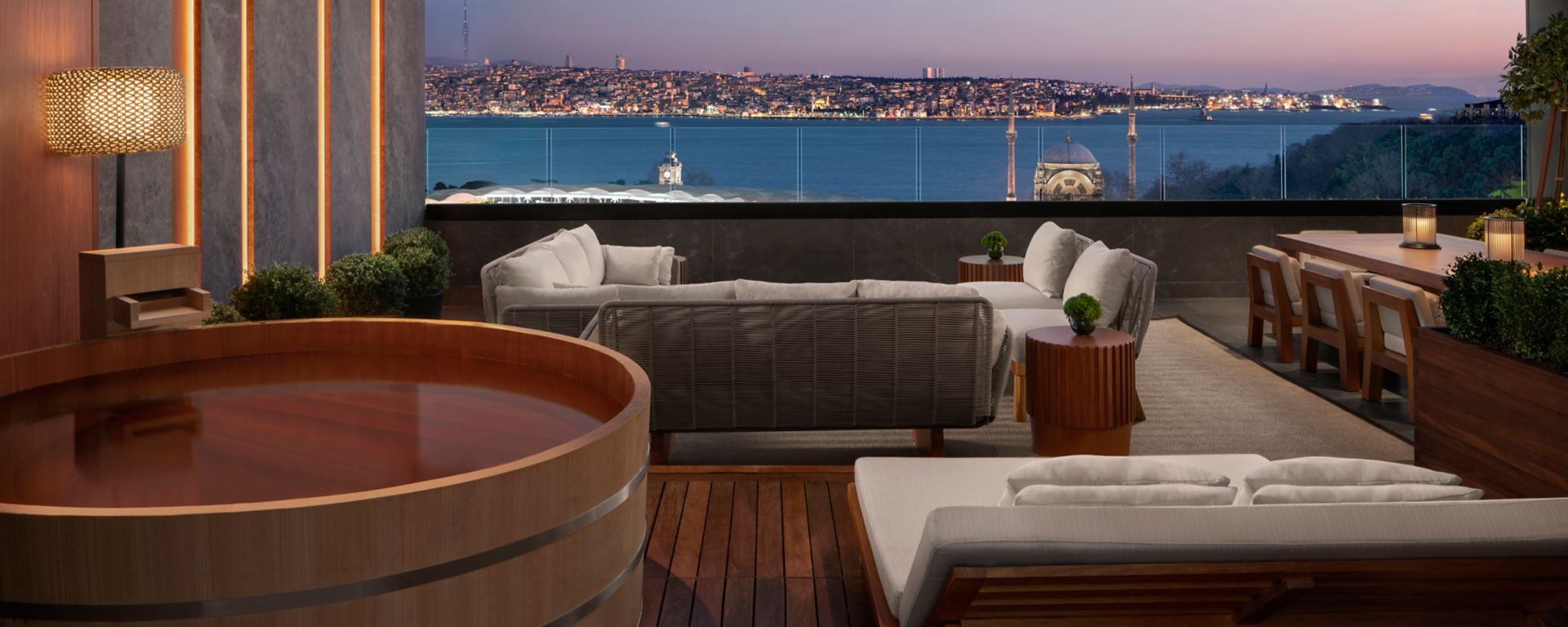
Luxury brands in the Marriott portfolio are synonymous with sophistication, personalization, and top-tier amenities. These properties focus heavily on service quality, bespoke design, and exclusive experiences.
Key brands in this segment include:
-
The Ritz-Carlton
-
St. Regis
-
The Luxury Collection
-
JW Marriott
-
W Hotels
Why it matters: Luxury Marriott hotels cater to guests who value a complete sensory experience—from high-thread-count linens and curated cuisine to personalized concierge services. These hotels often host VIP guests, high-level corporate travelers, and those seeking milestone vacations.
Use case example: The St. Regis New York offers butler service, Bentley chauffeur rides, and immediate access to Fifth Avenue shopping. It’s ideal for upscale business travel or romantic escapes where attention to detail is paramount.
Premium Marriott Hotels: Upscale Without the Excess
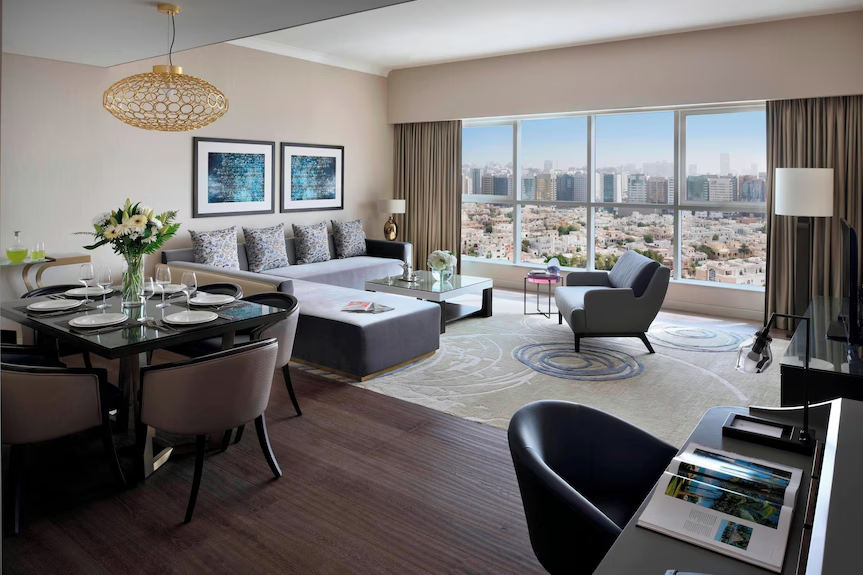
Premium hotels offer elevated comfort and thoughtful design, usually at a lower price point than luxury properties. This category is especially popular among business travelers and families seeking high-quality amenities.
Brands in this category include:
-
Marriott Hotels
-
Sheraton
-
Delta Hotels
-
Le Méridien
-
Westin Hotels & Resorts
-
Autograph Collection
-
Renaissance Hotels
Why it matters: These hotels provide a balance of style, service, and functionality. Premium Marriott properties often include wellness facilities, on-site dining, and flexible meeting spaces.
Use case example: The Westin Bonaventure Hotel in Los Angeles features wellness-themed amenities like the signature Heavenly® Bed and a 24-hour fitness studio. It’s ideal for convention-goers or corporate travelers who value wellness on the road.
Select Marriott Hotels: Practical, Comfortable, and Efficient
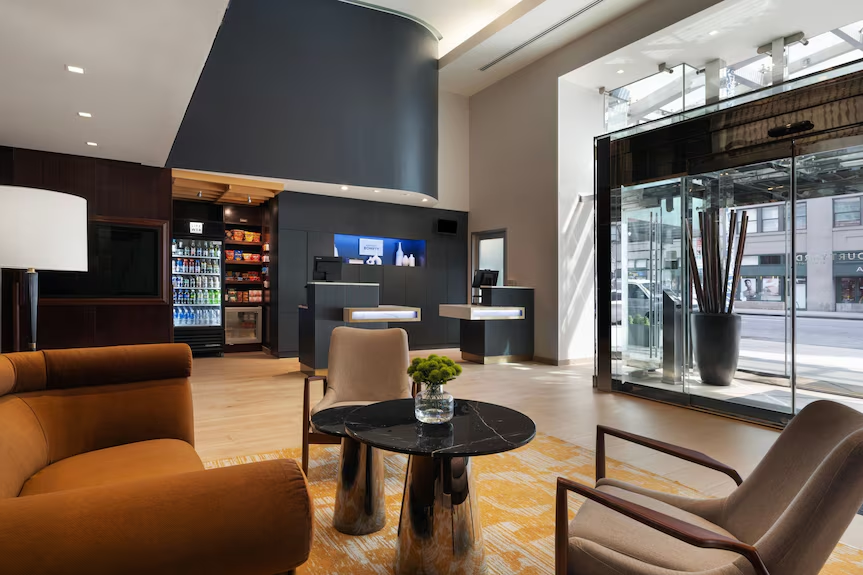
Select-service brands are designed for budget-conscious travelers who still want reliability and cleanliness. These properties emphasize smart layouts, tech-forward services, and minimalistic luxury.
Notable brands include:
-
Courtyard by Marriott
-
Fairfield Inn & Suites
-
SpringHill Suites
-
Four Points by Sheraton
-
Aloft Hotels
-
Moxy Hotels
Why it matters: Select hotels are ideal for short stays, road trips, and overnight business travel. They are often located near airports, business hubs, and major highways.
Use case example: Courtyard San Francisco Downtown provides high-speed Wi-Fi, functional workspaces, and a quick-service café. This makes it perfect for digital nomads and conference attendees.
Extended Stay Marriott Hotels: Designed for Longer Travel Needs
When your trip spans more than a few nights, Marriott’s extended-stay brands deliver comfort and convenience with in-room kitchenettes, spacious layouts, and community-focused services.
Core brands in this category:
-
Residence Inn by Marriott
-
TownePlace Suites
-
Element by Westin
Why it matters: These properties cater to business relocations, family transitions, and medical stays. The ability to cook in-room and spread out makes extended-stay Marriott brands cost-effective for longer durations.
Use case example: Residence Inn Washington, D.C. Capitol offers apartment-style living with grocery delivery, making it an excellent option for government contractors and families moving to the area.
Lifestyle Marriott Hotels: Trendy, Local, and Youth-Oriented
Lifestyle Marriott brands focus on design, local influence, and vibrant social atmospheres. They appeal especially to younger travelers, solo tourists, and remote workers who appreciate community and creativity.
Key lifestyle-focused brands:
-
Moxy Hotels
-
Aloft Hotels
-
AC Hotels by Marriott
-
W Hotels (also considered luxury-lifestyle hybrid)
-
Tribute Portfolio
Why it matters: These properties typically offer tech-enabled check-in, curated art displays, communal workspaces, and local cultural tie-ins.
Use case example: Moxy NYC Downtown has a rooftop bar, self-service check-in, and lively decor—making it a favorite among Gen Z travelers and city explorers.
Technology Integration in Different Marriott Hotels
Across its brand spectrum, Marriott uses a powerful technology backbone to enhance guest experiences.
Mobile Key & App Integration
Guests at many Marriott properties can check in, access rooms, and request services via the Marriott Bonvoy mobile app. This eliminates the need for physical keys and speeds up check-in times.
Personalized Guest Profiles
Loyalty members benefit from stored preferences like pillow type, room temperature, or high-floor requests, which apply automatically across stays—regardless of the brand.
Smart Room Features
Certain properties offer rooms with smart lighting, voice assistants, and streaming-enabled TVs, especially in brands like Aloft, Moxy, and W Hotels.
Guest Connectivity & Wi-Fi
High-speed internet is standard across all categories, with premium tiers available. Many properties include business centers and remote-work-focused zones.
Real-World Use Cases: How Different Marriott Hotels Solve Travel Challenges
Problem 1: Finding Comfort During Long-Term Business Assignments
Solution: Residence Inn by Marriott provides a homelike atmosphere with kitchenettes, free breakfast, and laundry access.
Problem 2: Hosting an Executive Retreat or High-Level Meeting
Solution: The Ritz-Carlton offers exclusive boardrooms, curated dining menus, and VIP-level concierge services in scenic global locations.
Problem 3: Balancing Work and Leisure on a City Break
Solution: AC Hotels combine minimalist European design with functional workspaces, perfect for bleisure (business + leisure) travelers.
Problem 4: Providing Affordable and Reliable Family Travel
Solution: SpringHill Suites offers large rooms with separate sleeping and lounging areas, perfect for parents with children.
Problem 5: Connecting With Local Culture While Traveling Solo
Solution: Tribute Portfolio and Moxy Hotels deliver local design and social spaces, helping travelers feel immersed without compromising safety or quality.
Frequently Asked Questions (FAQ)
1. What is the difference between Marriott’s luxury and premium hotel brands?
Luxury Marriott brands offer highly personalized service, designer interiors, and unique experiences for high-end guests. Premium brands are upscale but more accessible, offering comfort and services at a slightly lower price point.
2. Do all Marriott hotels participate in the Marriott Bonvoy program?
Yes, all Marriott-branded hotels are part of the Marriott Bonvoy loyalty program. This allows guests to earn and redeem points across over 30 brands globally, including both luxury and select-service hotels.
3. Which Marriott hotel brands are best for long stays?
Residence Inn, TownePlace Suites, and Element by Westin are specifically designed for extended stays. These hotels provide kitchenettes, extra living space, and cost-saving amenities for guests staying a week or longer.
